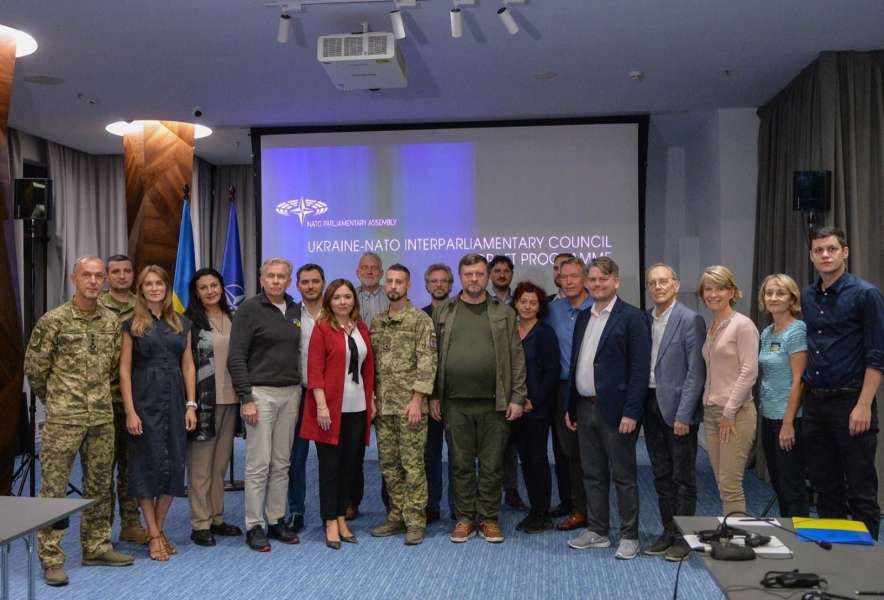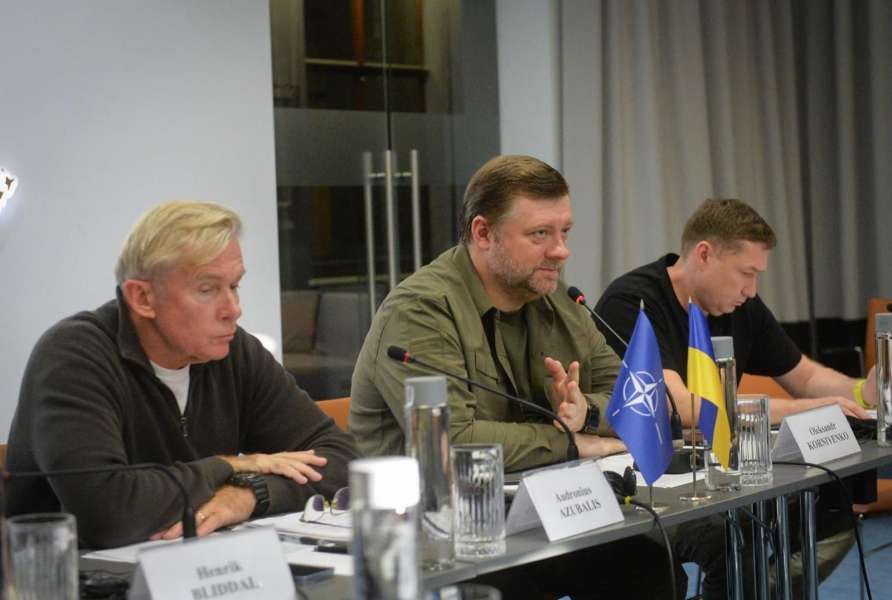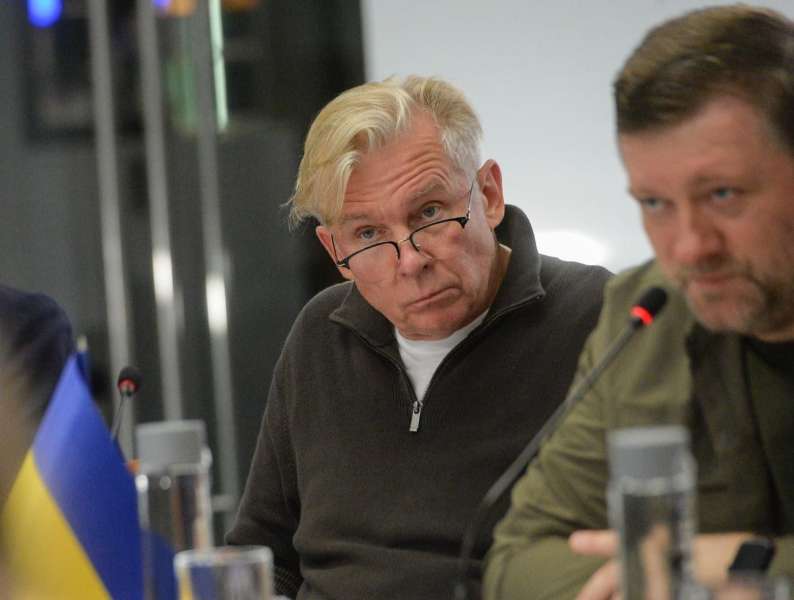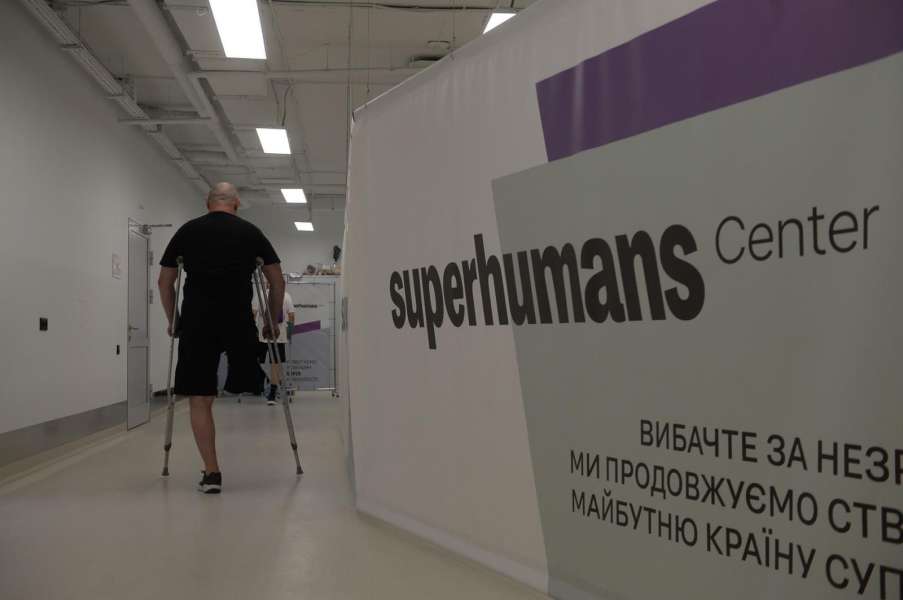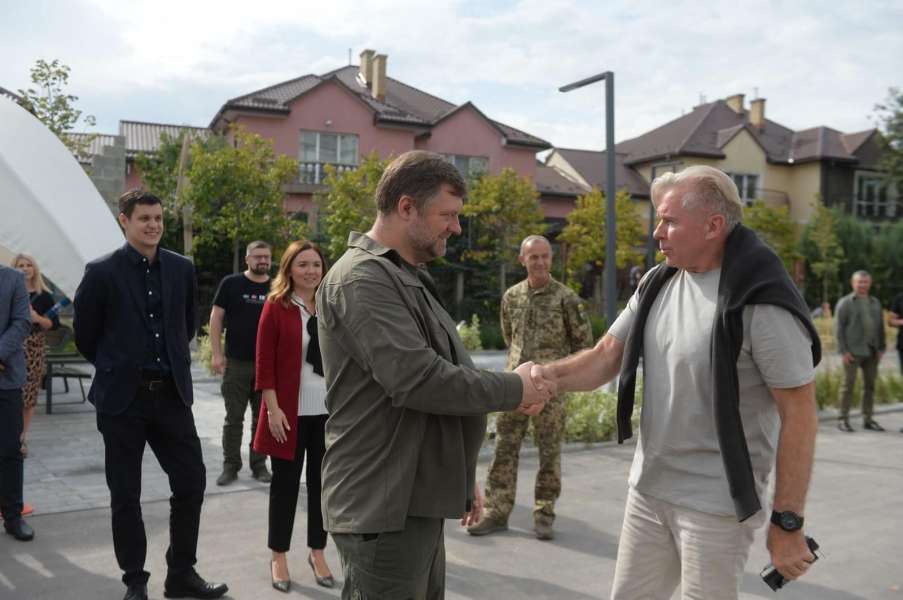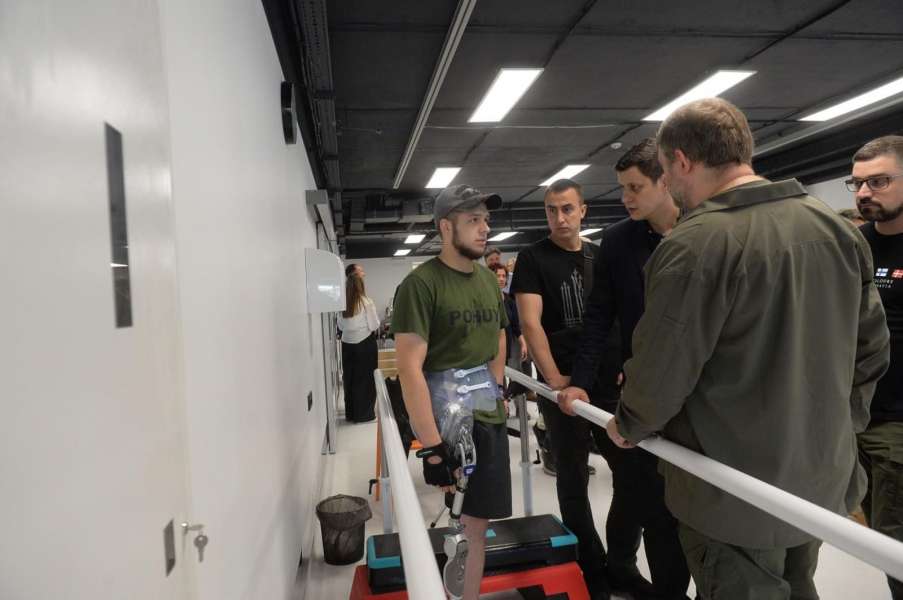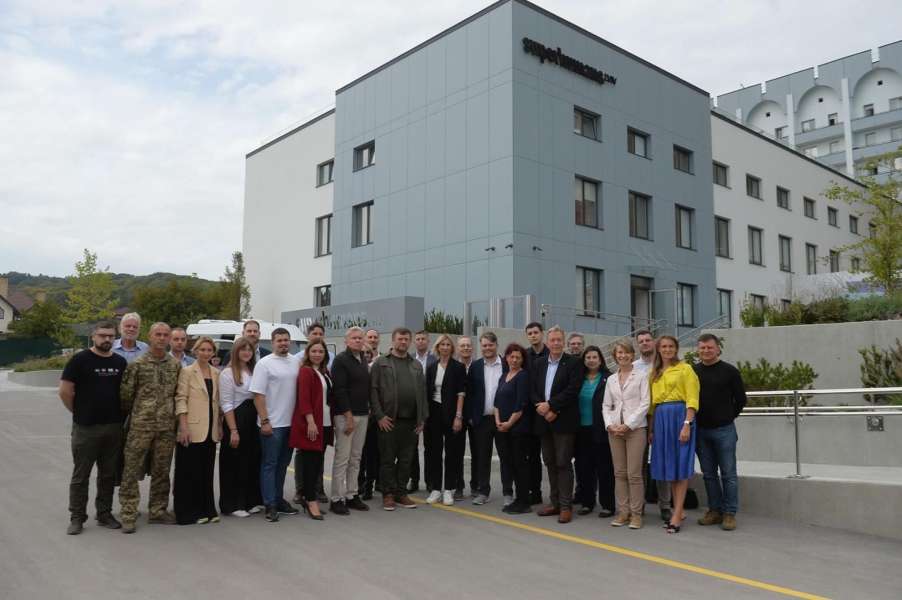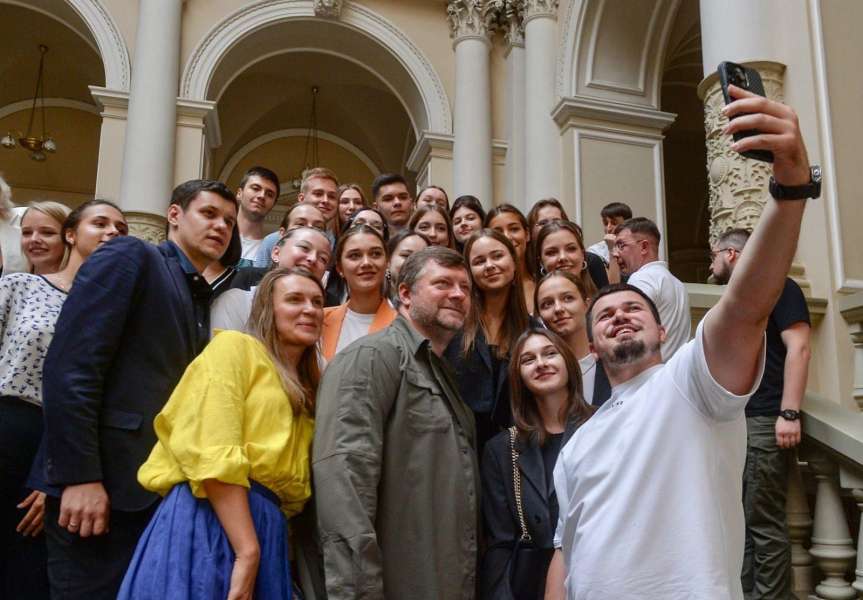On Saturday, September 23, a delegation of the Verkhovna Rada of Ukraine paid a working visit to Lviv to participate in a meeting of the NATO-Ukraine Interparliamentary Council (UNIC).
NATO-Ukraine Interparliamentary Council
According to the First Deputy Chairman of the Verkhovna Rada of Ukraine Oleksandr Korniyenko, in Lviv, members of the NATO-Ukraine Interparliamentary Council reaffirmed their determination to do everything possible to support Ukraine to victory.
In particular, during the meeting, the parties discussed the important results of the Vilnius NATO Summit and called on the leaders of the Alliance to take further concrete steps and make decisions to help Ukraine on its clear path to joining the North Atlantic Treaty Organization, so that the invitation can be implemented as soon as possible.
"The main issue is to continue Ukraine's integration into the North Atlantic Treaty Organization. This is our perspective for the next period," emphasized Oleksandr Korniyenko. He also said that the delegation of the Verkhovna Rada of Ukraine informed their colleagues about the current situation on the battlefield, the supply of weapons to Ukraine, as well as the legislative aspects of Ukraine's integration into NATO.
"It is very important to be able to hold such events when we can inform our colleagues from other parliaments about what is happening in Ukraine," said Yehor Chernev, the Head of the Permanent Delegation to the NATO Parliamentary Assembly, the Deputy Chairman of the Committee on National Security, Defense and Intelligence. "First of all, we need to work not even with parliaments, but with the people of these countries, who actually elect these parliaments," he said, explaining that when a parliamentarian visits his or her district and tells voters what is happening, why it is necessary to continue supporting Ukraine and increase assistance, it becomes easier to get the help that Ukraine needs on the battlefield.
"For us, all platforms where we interact with other parliamentary assemblies and national parliaments are important," said Ivanna Klympush-Tsintsadze, the Chair of the Committee on Ukraine's Integration into the European Union. She also noted that it is very important that the meeting of the NATO-Ukraine Interparliamentary Council is taking place in Ukraine, because "our colleagues see with their own eyes the real challenges of the war that Ukraine has faced."
"What we need now is to increase and enhance the assistance we critically depend on. This may be one way. Another is to initiate various additional documents that the NATO Parliamentary Assembly could use to address the executive branch and set the tone for Ukraine's future in the Alliance, including the need to invite Ukraine to join the North Atlantic Treaty Organization. This is possible if we work systematically and as efficiently as possible," emphasized Ivanna Klympush-Tsintsadze.
For his part, Andriy Kozhemiakin, the Member of Parliament of Ukraine, the Chairman of the Committee on Youth and Sports, said that the agenda of the meeting included many issues, including the interaction of NATO parliaments, Ukraine's prospects for joining the Alliance, and options for accelerating this path. He emphasized that joint resolutions are being prepared on all important issues to influence the parliaments of all NATO member states.
Iryna Friz, the Member of the Committee on Anti-Corruption Policy, noted that the latest NATO PA resolutions are important enough for everyone: "We have to return them every time for ourselves. Because they contain clear messages that tell us how russia carries out aggression, in particular, regarding hybrid warfare." "The level of our cooperation with the NATO PA is at the highest level, and we need to continue it. We must achieve the greatest possible consolidation of the crimes of the russian federation in all documents adopted by the NATO PA at its meetings," the parliamentarian emphasized.
"In Vilnius, we continued to support Ukraine and introduced new practical assistance packages. But I hope for much more. These are not only practical assistance packages, but also some political decisions," said Audronius Azubalis, the Co-Chair of the NATO-Ukraine Interparliamentary Council.
He also emphasized the need to bring Ukraine closer to membership, recalling that in Vilnius, the leaders of the Group of Seven and the President of Ukraine Volodymyr Zelenskyy signed a joint declaration that will result in bilateral commitments and security arrangements.
"We want to create an iron fist of solidarity with Ukraine, a nation that is fighting for the survival of Europe, in particular. We must be clear that if we do not fully support Ukraine until it wins, putin is waiting for us. If we freeze the war now, putin will declare victory," said Audronius Azubalis.
"We call on the leaders of our governments to increase their support to provide Ukraine with everything it needs to stop russia's brutal aggression. The stability and security of the Euro-Atlantic region depends on security in Ukraine," he said, emphasizing that Europe's security is impossible without Ukraine's membership in NATO.
Following the meeting, the participants adopted a statement (the full text of the document is below) calling on Allied leaders to take bold strategic decisions on Ukraine's membership in NATO at the Washington Summit in 2024 and to support President Zelenskyy's Peace Formula. They also emphasized that the russian federation must be held accountable for the crime of aggression, and sanctions against russia must be maintained and expanded to undermine its ability to continue its military actions.
The delegation visited the Superhumans rehabilitation center
In addition to participating in the meeting, the parliamentary delegates visited the Superhumans National Rehabilitation Center, a modern Ukrainian center for prosthetics, reconstructive surgery, rehabilitation and psychological support for adults and children affected by the war.
"The topic of full rehabilitation is not only about medical rehabilitation, but also about physiological and psychological rehabilitation. It is about enabling everyone to use prostheses, feel comfortable in any situation, return to all spheres of life and integrate into society," emphasized the First Deputy Chairman of the Verkhovna Rada of Ukraine. At the same time, Oleksandr Korniyenko noted that the example of this center should be incorporated into the general system of work with people who have lost limbs: "This should be a part of the state policy — we are working on the veteran policy."
For his part, Roman Hryshchuk, the member of the Committee on Education, Science and Innovation, emphasized that the number of such centers and trained specialists should be increased. He also thanked international partners and donors for their support and cooperation.
Solomiya Bobrovska, the member of the Committee on National Security, Defense and Intelligence, noted that every region of Ukraine should have such centers to be able to provide qualified medical rehabilitation assistance to Ukrainian soldiers. She expressed her belief that it is necessary to expand the system of such centers, because, unfortunately, today the number of amputees in Ukraine is higher than during the Second World War because of russia's war against Ukraine.
"I feel deep
sadness for the Ukrainian people because of the attacks and brutal murders
committed by the russians. But on the other hand, I see the strong will and
steadfastness of Ukrainians to fight for the independence of the whole country,
for the people, for culture, for identity," said Audronius Azubalis, the
Co-Chairman of the NATO-Ukraine Interparliamentary Council, during his visit to
the Center. He noted that what he saw at the Superhumans Center is a vivid
example of how ordinary people become superhumans: "This is not only help
to bring people back to normal life, it shows the nation as strong and
unbreakable."
Meeting of the delegation with scholars and students of Ivan Franko National University of Lviv
Finally, the First Deputy Chairman of the Verkhovna Rada of Ukraine Oleksandr Korniyenko and members of the Ukrainian Parliament met with scholars and students of the Faculty of International Relations of Ivan Franko National University of Lviv.
The First Deputy Chairman thanked the university community for the invitation and the opportunity to communicate with the students. "We know that it was they who started many things, including changes for the better in our country and the defense of Ukrainian principles and values," Oleksandr Korniyenko emphasized.
"The student fraternity, the fraternity of Lviv region, played a very important role in making our democracy and independence possible back in 1990," the First Deputy Chairman emphasized.
At the same time, he expressed his gratitude to the university community "for the force that is driving and building our state." "We always believe in you and know that you are capable of anything, in particular, for the sake of Ukraine, to build a successful country. We are proud of you and will support you in all your steps and aspirations."
"Young people are very important for Ukraine, because we understand that in 5-10 years it will be the younger generation who will hold positions in diplomatic institutions, these young people will become members of the Ukrainian Parliament," said Halyna Mykhailyuk, Member of Parliament of Ukraine, the Deputy Chair of the Committee on Law Enforcement, during a meeting with students, adding that it is therefore very important to hear their views on Ukraine's future in NATO.
The full text of the statement adopted at the meeting of the NATO-Ukraine Interparliamentary Council is available below.
Statement by the UNIC Co-Chairs Oleksandr KORNIYENKO (Ukraine), First Deputy Chairman of the Verkhovna Rada, and Audronius AZUBALIS (Lithuania)
Lviv, 24 September 2023
Nearly 600 days of Russia’s brutal, unprovoked and illegal full-scale invasion of Ukraine have inflicted unspeakable pain and suffering upon the Ukrainian people. Vladimir Putin started this. He can stop it at any moment by withdrawing all his troops from all of Ukraine.
Members of the Ukraine-NATO Interparliamentary Council (UNIC) of the NATO Parliamentary Assembly (NATO PA) came together yesterday in Lviv.
We paid tribute to a courageous, European nation of free people. Allied parliamentarians witnessed firsthand the resolve of the Ukrainian people to protect their land, their families, their way of life and their democracy from the onslaught of revisionist authoritarianism.
Russia is continuously undermining the values of the entire democratic, civilised and peaceful world and the rules-based international order. Moscow’s renewed, reckless obstruction and targeting of Ukrainian grain exports is a cynical attempt to gain leverage by hurting those most in need. Russia remains the most significant and direct threat to Allies’ security and peace and stability in the Euro-Atlantic area, as Allied leaders made clear once again at the 2023 NATO Summit in Vilnius.
Time and again, the Assembly has reaffirmed its unwavering support for Ukraine’s democracy, independence, sovereignty, self-defence and self-determination. Its members have consistently urged their governments and NATO leaders to redouble their support. In Lviv, UNIC members reaffirmed their determination to do everything they can to support Ukraine for as long as it takes to prevail.
At our meeting, we addressed the important outcomes at the NATO Vilnius Summit. We laud the stepped-up support for Ukraine through a new substantial package of expanded political and practical support. Developing the Comprehensive Assistance Package (CAP) into a strategic multi-year NATO assistance programme, setting up the NATO-Ukraine Council and removing the requirement for a Membership Action Plan are all welcome developments. So is the Joint Declaration between the G7 and President Zelenskyy, which will lead to bilateral security commitments and arrangements.
In Vilnius and since then, Ukraine’s partners have delivered or announced many important increases in military support. Thanks to this support, Ukrainian lives have been saved and Ukrainian towns and villages liberated. Continuing to step up these deliveries, both in terms of quality and quantity, must remain a priority. Ukraine must have more critical capabilities, including long-range strike systems and multi-purpose fighter jets. We welcome recent announcements of several Allies to provide these assets, and we call on other nations to follow.
We welcome that Allied leaders in Vilnius noted they would “be in a position to extend an invitation to Ukraine to join the Alliance when Allies agree and conditions are met”. We therefore urge Allied leaders to take further concrete steps and decisions to assist Ukraine on its clear path toward NATO membership, so that Allies can invite Ukraine to join as soon as possible. As Co-Chairs, we strongly believe that the future European security order will be neither complete nor sustainable without Ukraine as a full- fledged member of NATO. The clear prospect of membership in NATO also plays a vital role in bolstering the morale of the Ukrainian society and armed forces as they fight for their freedom and democratic values.
The NATO PA and UNIC, in particular, must also take further concrete, tangible steps to support Ukraine, including through the Assembly’s special fund to support Ukraine’s democracy. That is why we, as UNIC Co-Chairs, agreed to propose new practical measure at the Assembly’s upcoming Annual Session in Copenhagen. We want to fortify the partnership between the Assembly and the Verkhovna Rada. And we want to support the reforms that will bring Ukraine into NATO.
During our meeting, we also reiterated other important calls:
- Allied leaders should take bold, strategic decisions regarding Ukraine’s NATO membership at the Washington Summit in 2024.
- More nations should support Ukrainian President Zelenskyy’s Peace Plan, which provides the foundation for a comprehensive, just and sustainable peace.
- Russia must be held accountable, through national and international initiatives, for the crime of aggression. Those who committed war crimes, crimes against humanity and potential acts of genocide on the territory of Ukraine must be prosecuted.
- Sanctions on Russia must be sustained and expanded to cripple its ability to continue the war effort, and national and multi-lateral mechanisms to prevent sanction circumvention must be stepped up.
- Belarusian, Iranian and North Korean authorities must be condemned for actively supporting the Russian aggression. Co-aggressors and accomplices of the Russian state, which under the current regime is a terrorist one, must be held accountable for their actions.
- Ukraine’s democratic partners must start putting in place a comprehensive aid programme – akin to the Marshal Plan – for the reconstruction of a more prosperous Ukraine firmly anchored to the liberal democratic family of nations. The Co-Chairs are fully convinced that blocked or frozen sanctioned Russian assets should be used for this purpose. Russia will ultimately have to pay for the damages and losses inflicted upon Ukraine.
The Assembly is institutionally separate from NATO but serves as an essential link between NATO and the parliaments of the NATO nations. It provides greater transparency of NATO policies and fosters better understanding of the Alliance’s objectives and missions among legislators and citizens of the Alliance.
UNIC was created in 1998 to bring greater transparency to the implementation of the NATO Ukraine Charter and to demonstrate parliamentary interest and involvement in cooperation between NATO and Ukraine. It has since become a wider forum where members can discuss any issues of mutual concern. UNIC has played a leading role in the Assembly’s response to Russia’s renewed invasion.
